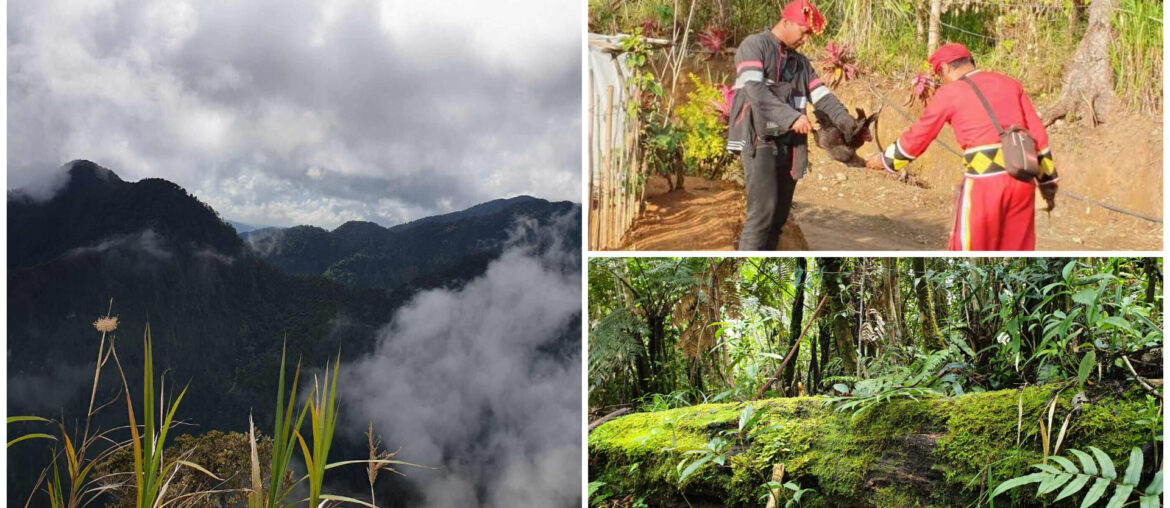Up here, the sky feels closer and the stories grow deeper. In Kitanglad, the forest whispers legends older than time.
Mount Kitanglad is one of the most majestic peaks in the Philippines, located in the province of Bukidnon, Northern Mindanao. As the fourth-highest mountain in the Philippines, Mount Kitanglad stands at 2,899 meters high above sea level. The peak is named after the “Kitanglad,” which is a type of fern that once covered the slopes. The place is not only to be enjoyed by trekkers and nature lovers, but also it is one of the vital sanctuaries for biodiversity and the indigenous culture of our country.
Fern And Firm Beliefs
Protected under the Mount Kitanglad Range Nature Park, Mount Kitanglad was declared a protected landscape in 2000. It is also recognized as an ASEAN Heritage Park, which highlights its ecological significance. The mountain is sacred to the indigenous peoples, who consider it a spiritual home and source of cultural rituals and offerings that are still performed here to honor ancestral spirits.
Peak Your Plans
Trekking and Hiking
Mount Kitanglad offers several trails. The summit rewards hikers with breathtaking views of neighboring peaks like Mount Dulang-dulang and Mount Kalatungan. Nature lovers can enjoy and feel relaxed in this nature’s gift of wonder.
Wildlife and Biodiversity
The mountain is home to a diverse array of flora and fauna, including endangered species such as the Philippine eagle, Philippine tarsier, and Rafflesia (the world’s largest flower). Birdwatchers can spot rare endemic birds, making it a prime destination for ecotourism.
Cultural Immersion
Visitors can interact with local indigenous communities, learning about their traditions, rituals, and sustainable farming practices. The Talaandig tribe often welcomes guests with cultural performances and storytelling.
Camping and Nature Photography
The cool climate and scenic landscapes make Mount Kitanglad an ideal spot for camping. The sea of clouds at dawn and the star-filled skies at night are perfect for photography enthusiasts.
Eco Epic Elevation
Mount Kitanglad holds immense ecological, cultural, and economic significance. As a biodiversity hotspot, the place shelters numerous endemic and endangered species, including the iconic Philippine eagle, the elusive Philippine tarsier, and the world’s largest flower, the Rafflesia. Its dense forests and high-altitude ecosystems serve as a vital refuge for wildlife, making it a critical area for conservation. Beyond its rich biodiversity, the mountain acts as a crucial water source, supplying rivers and streams that provide irrigation for farmlands and drinking water for surrounding communities in Bukidnon. Additionally, the growth of ecotourism in the area has opened opportunities for sustainable travel, allowing visitors to experience its natural wonders while supporting local livelihoods. Mount Kitanglad remains an important natural and cultural treasure in the Philippines, striking a balance between preservation and responsible tourism.
A treasure rich with nature, culture, and adventure, Mount Kitanglad is more than meets the eye. As a mountaineer, wildlife enthusiast, or cultural explorer, this mountain offers an experience that reminds us of the importance of conservation. Plan your trek responsibly, respecting local customs and helping preserve these natural wonders for future trekkers.
How To Get There?
Exact Location: Sitio Intavas, Barangay La Fortuna, Impasug-ong, Bukidnon, Philippines
- By Car: From Malaybalay City, drive north on Sayre Highway towards Impasug-ong for about 1 hour. When you reach Impasug-ong proper, follow the signs to Barangay La Fortuna. The road becomes steep and rough as you approach Sitio Intavas (the jump-off point), so a 4WD vehicle is recommended. The total travel time is approximately 1.5 hours from Malaybalay.
- By Commute: Take a bus or van from Malaybalay City to Impasug-ong (approximately 1 hour travel time). In Impasug-ong town proper, hire a habal-habal (motorcycle taxi) to take you to Sitio Intavas (a 45-minute ride). Ensure that you arrange for a guide and obtain permits from the Protected Area Management Office before commencing your trek.



Comments are closed.